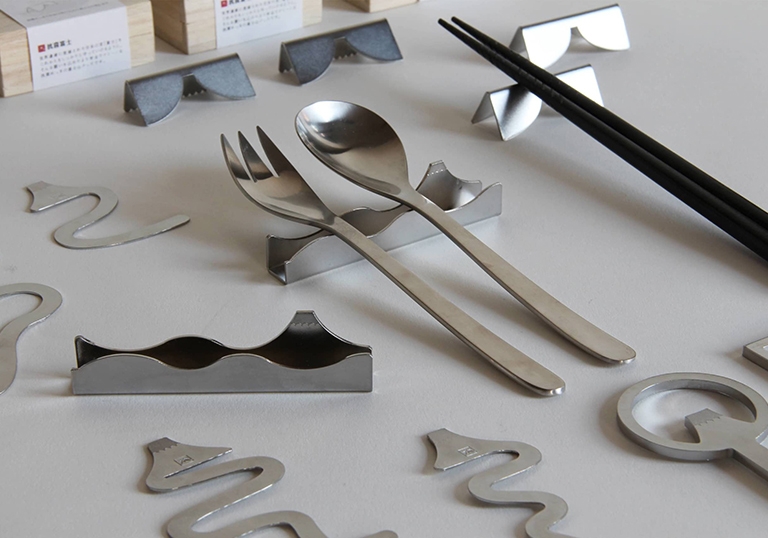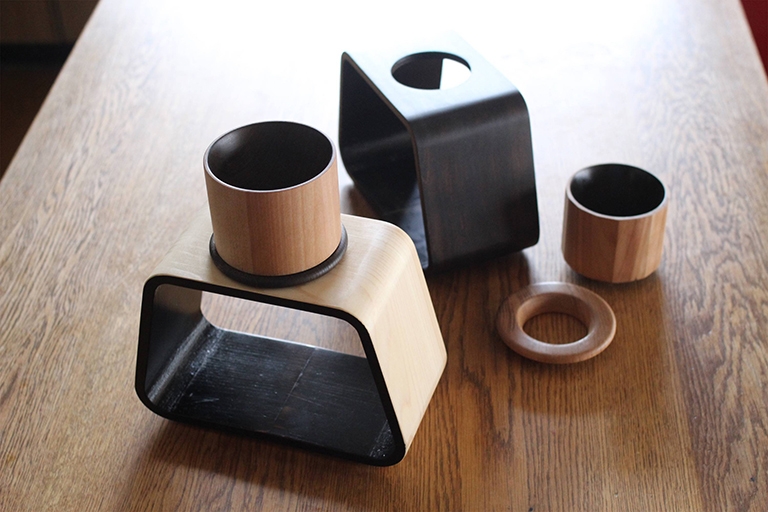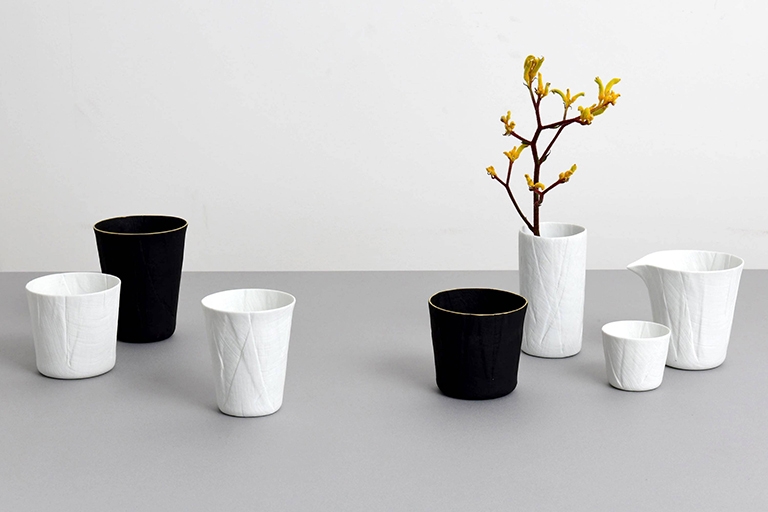Omotenashi Selection 2020: Artisanal items with Japanese flair

Germ-free: Every item in the Koukin Fuji collection is glazed with a Japanese-patented antimicrobial coating. |
Last month, the first session of the sixth annual Omotenashi Selection awarded 68 products, from foods to interior goods, in recognition of their good design and potential to promote Japanese culture overseas. It’s the initiative’s biggest project yet, and acknowledged the importance of continuing to promote soft power during the coronavirus-related economic downturn.
Though the Omotenashi Selection, a collaborative effort of more than 20 privately owned companies, is primarily aimed at vendors looking for Japan-made items, it’s an interesting resource for anyone wanting to see how innovations, and product and packaging design, may aid Japanese industry and crafts. Of the 17 Gold Award winners, three homeware items caught the eye of On: Design.

Wood you like a coffee?: Ohkochi Furniture Studio’s Noko dripper is made from Japan-sourced wood and crafted using traditional Kiso lacquerware methods.
Peak coffee dripper
The Noko coffee dripper’s curved wooden trapezoid stand, cup and ring base are strikingly stylish — but it’s the showcase of traditional Japanese woodworking skills that makes it extra special.
Layers of lustrous Japanese lacquer protect the interior of the dripper cup: Hikimono wood-turning is used to carve the cup’s ring base from a single block of birch, and the smooth arcs of its plywood stand are molded into shape using hikimage bentwood techniques, both of which can only be done by hand. Inspired by a bucolic mountain lifestyle and crafted by Ohkochi Furniture Studio in Nagano Prefecture, the Noko is made from Japan-sourced wood and crafted using traditional Kiso lacquerware methods.
Priced at ¥19,250, it may be a niche product for the discerning coffee enthusiast, but it’s 100 percent Japanese.
